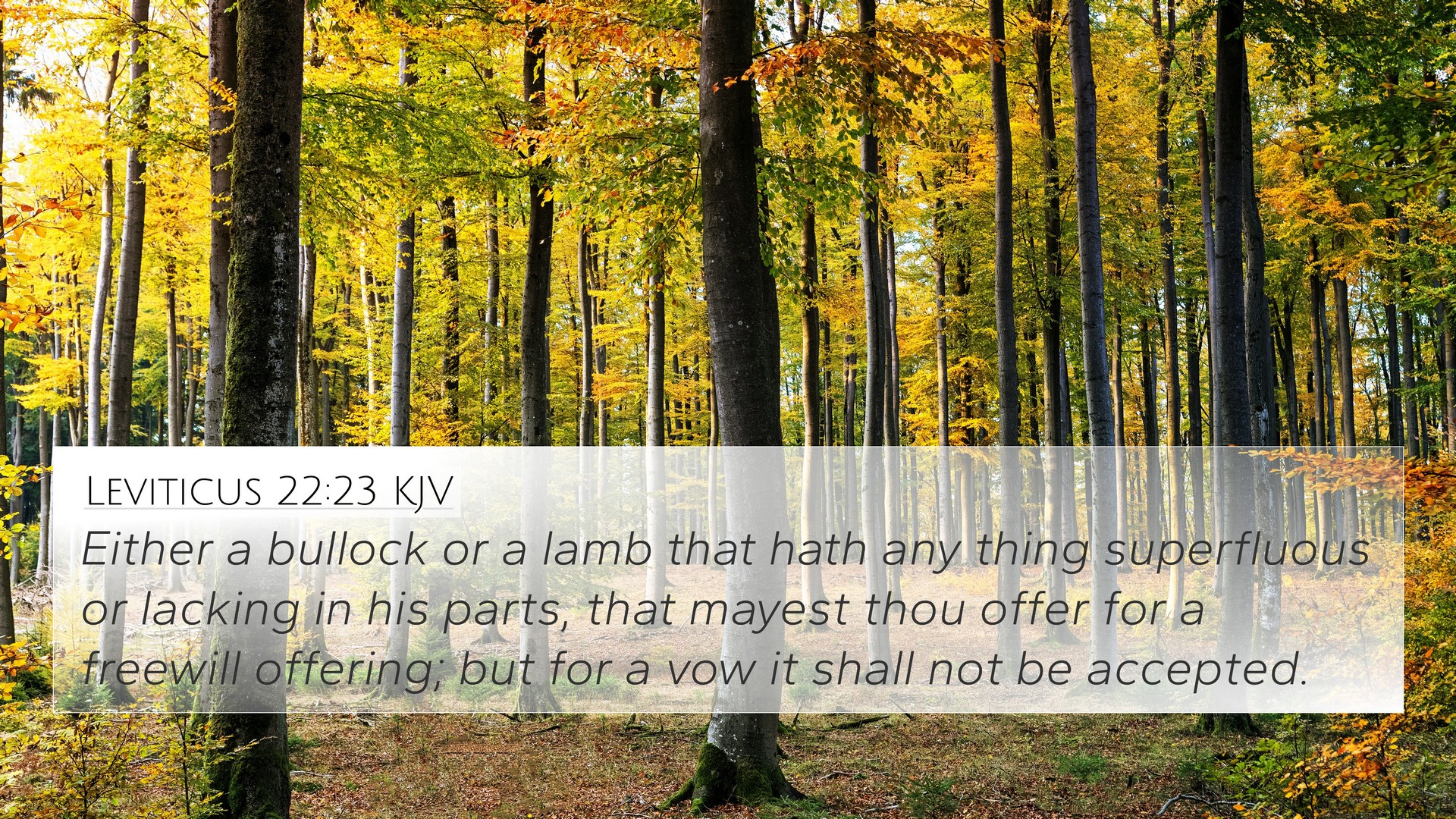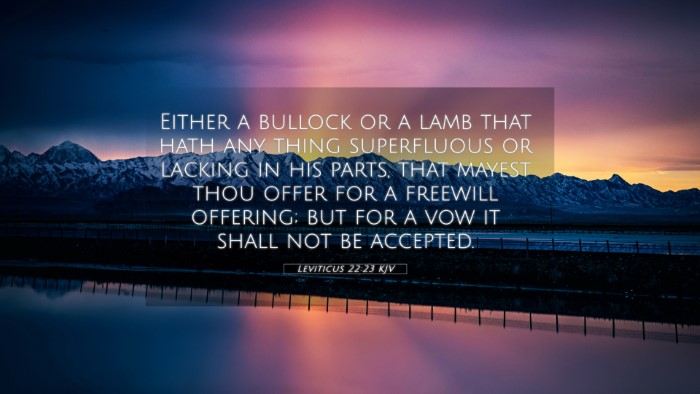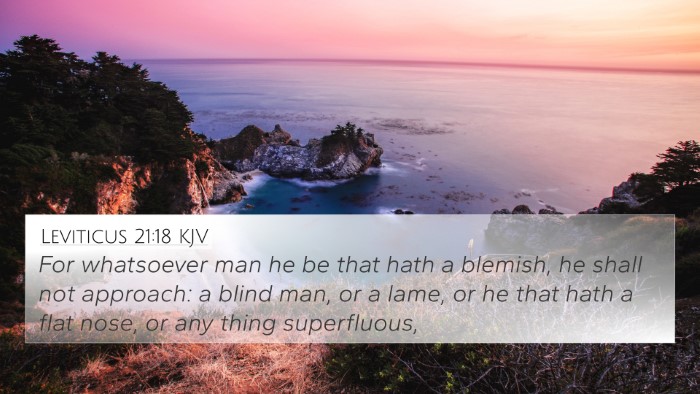Understanding Leviticus 22:23
Leviticus 22:23 states: "Either a bullock or a lamb that hath any blemish, that is a wave offering, shall not be accepted for you." This verse outlines requirements regarding sacrificial offerings in the Law, emphasizing the significance of purity and acceptability before God. Below is a synthesized interpretation of this verse combining insights from public domain commentaries.
Key Insights from Commentaries
-
Matthew Henry:
Henry emphasizes that offerings to God must be without blemish as a reflection of the perfection of Christ, the ultimate sacrifice. God desires the best from His people, and such laws were meant to keep the Israelites focused on holiness in their worship.
-
Albert Barnes:
Barnes highlights that the mention of a wave offering signifies an act of gratitude and dedication. This verse underscores the seriousness with which God takes the presentation of offerings, reinforcing the need for life dedicated to God's service.
-
Adam Clarke:
Clarke notes it is not just the physical perfection of the animal that matters. The internal state of the offeror—a heart right with God—also plays a crucial role. Hence, an unblemished offering is symbolic of a blameless life lived in obedience to God's commandments.
Significance of Blemishes in Offerings
The Hebrew culture placed immense value on the condition of sacrificial animals, which directly connects to broader themes in Scripture relating to holiness and divine favor. These laws were instituted to guide worship and ensure that interactions with God adhered to a standard of reverence.
Related Bible Verses
Understanding Leviticus 22:23 also involves recognizing its connections with other Scripture. Here are 10 significant cross-references:
- Exodus 12:5: Reiterating the requirement for the Passover lamb to be without blemish.
- 1 Peter 1:19: Alluding to the blood of Christ, a lamb without blemish and spot.
- Malachi 1:8: Condemning lame and sick offerings, illustrating what God detests in worship.
- Hebrews 9:14: Discussing how the blood of Christ purges our conscience, akin to the idea of purity in offerings.
- Isaiah 53:7: Prophetic reference to the perfect, unblemished nature of the Messiah.
- Romans 12:1: Encouraging the presentation of our bodies as a living sacrifice, holy and acceptable to God.
- Philippians 4:18: Paul refers to sacrifices as a sweet-smelling aroma before God.
- Matthew 5:23-24: Tying the acceptance of offerings to one's relationships and spiritual condition.
- James 1:27: Defining pure religion as that which is faultless before God.
- 2 Corinthians 5:21: Emphasizing Jesus made Him who knew no sin to be sin for us; reflecting the theme of perfection.
Thematic Connections
The idea of offering something blemish-free emerges throughout Scripture as a recurring theme. The requirement for purity not only reinforces the covenant between God and His people but also points to the ultimate sacrifice of Jesus, whose purity and holiness fulfilled the requirements of the Law.
Importance of Cross-Referencing
Utilizing tools for Bible cross-referencing such as a Bible concordance or a cross-reference Bible study guide can illuminate connections, such as those between offerings in the Old Testament and the New Testament teachings regarding sacrifice and holiness. It is essential for deeper scriptural understanding to engage with these references, linking key themes and teachings throughout the Bible.
Practical Application
Bible scholars and believers alike can appreciate how understanding the connections between passages can enrich their faith. For those preparing sermons, Bible cross-references for sermon preparation can provide a foundational structure for delivering God’s word effectively.
Final Thoughts
Through careful study and cross-referencing of Biblical texts, believers can explore the theological depth present in verses like Leviticus 22:23. The standards set forth for offerings serve not just as historical regulations but as timeless reminders of God's call for purity, complete devotion, and the ultimate fulfillment of those calls in Christ.



